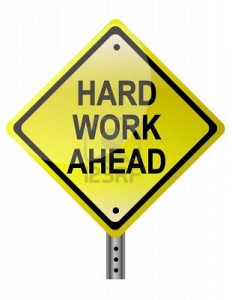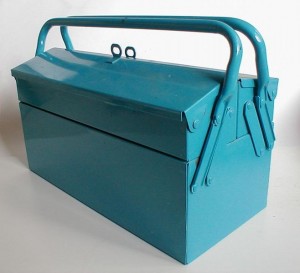 For a variety of reasons, my attention has recently been directed toward that unique and challenging time of life that used to be called “young adulthood” – about ages 18-25 and sometimes into the late 20’s. The realities of those in this age group have been shifting dramatically for a while, but there’s a marked difference even in the past fifteen to twenty years. Some have taken to calling it “extended adolescence,” hinting at the trend of those of this age group to wait much later in life before taking on what are traditionally considered adult responsibilities – finding a life partner, having children, buying a house, and “settling down” in general. There is less social pressure than in the past to get married immediately after college, and young people are taking extra time to get advanced degrees and travel and get started in their careers before making the more permanent commitments.
For a variety of reasons, my attention has recently been directed toward that unique and challenging time of life that used to be called “young adulthood” – about ages 18-25 and sometimes into the late 20’s. The realities of those in this age group have been shifting dramatically for a while, but there’s a marked difference even in the past fifteen to twenty years. Some have taken to calling it “extended adolescence,” hinting at the trend of those of this age group to wait much later in life before taking on what are traditionally considered adult responsibilities – finding a life partner, having children, buying a house, and “settling down” in general. There is less social pressure than in the past to get married immediately after college, and young people are taking extra time to get advanced degrees and travel and get started in their careers before making the more permanent commitments.
I heard an interview a few weeks ago on Marty Moss-Coane’s show Radio Times here in Philadelphia. She was speaking with Jeffrey Jansen Arnett and Hannah Seligson. Jeffrey Arnett is the one who first proposed the label “emerging adulthood” for that period of life from the late teens to the mid-to-late twenties. His theories and thoughts about this age group are fascinating and if you’re interested, I encourage you to check it out! Hannah Seligson is a 30-year-old successful journalist with equally interesting thoughts about this time of life, and she happens to be closer to it in age than Jeffrey Arnett. So it makes for great show.
No matter your feeling about the trends of those formerly known as “young adults,” the fact is that it is during this time period that most aspiring young musicians are really hitting it hard. It is prime working time and when the meat of musical education generally takes place – though it can take place earlier or later for some. Certain instruments lend themselves to intense work at different times. Strings and piano start very early, and the voice can be developed later, for instance. But generally speaking, everyone is working hard between ages 18-25 as they move towards becoming professionals, and for most brass players I know, this was the most intense time of development.
For anyone, no matter the professional aspirations, this time of life is usually full of exploration, excitement, and constant change – all of which lend themselves to questions, disappointment and uncertainty. And for someone wanting to become a professional classical musician, I think that the positive and negative qualities of this time can feel heightened due to several factors: that music involves the whole person – body, mind, emotions, and spirit; it is highly competitive with no guarantees of a steady job in the future; and, last but not least, the final product is a public one that happens in real time. Additionally, these days, the music business is changing quickly and requires – or at least is helped by having – even more skills than ever before. Public speaking, grant writing, and an entrepreneurial know-how, for instance, are coming in more and more handy.
 As an aside, I should say here that if you are thinking of becoming a musician, or are in school for music, and don’t already realize that making it as a professional musician is an all-consuming task, now is a good time to contemplate that fact. I have yet to meet an accomplished classical musician who has not been through a period of many years (usually the majority of their young lives and beyond) of unbelievable focus and hard work. We’re talking about day-in-day-out commitment, regardless of whether it is a weekday or weekend, a normal day or a holiday. It is like training for the Olympics – daily refinement of your skills over a long period of time while also preparing for big events that will help you progress on your desired path. Must this challenging path be angst-filled and joyless for you? I hope not! In fact, if you are angst-filled all the time, something is wrong. (See this great blog post by Cal Newport to read more about this subject). Generally speaking, music will fuel you and give back to you, as will the people and experiences you encounter along the way. However, it is up to you to determine whether you are getting enough back from music to warrant pursuing it as your life’s work.
As an aside, I should say here that if you are thinking of becoming a musician, or are in school for music, and don’t already realize that making it as a professional musician is an all-consuming task, now is a good time to contemplate that fact. I have yet to meet an accomplished classical musician who has not been through a period of many years (usually the majority of their young lives and beyond) of unbelievable focus and hard work. We’re talking about day-in-day-out commitment, regardless of whether it is a weekday or weekend, a normal day or a holiday. It is like training for the Olympics – daily refinement of your skills over a long period of time while also preparing for big events that will help you progress on your desired path. Must this challenging path be angst-filled and joyless for you? I hope not! In fact, if you are angst-filled all the time, something is wrong. (See this great blog post by Cal Newport to read more about this subject). Generally speaking, music will fuel you and give back to you, as will the people and experiences you encounter along the way. However, it is up to you to determine whether you are getting enough back from music to warrant pursuing it as your life’s work.
If you have a strong pull towards another field, or feel more fulfilled in your contributions to something else, then all of that should be taken into consideration as you contemplate what it is that you really want to do. There is no glory in doing something that isn’t going to be a right fit for you or is not going to give you what you need. Music is for everyone, and you don’t have to be making your living performing it in order for it to be a significant and meaningful part of your life.
But let’s assume for now that you are aware of all of this, have made your decision, and are in it for the long haul. You’re going to go for it and give it your all. In fact, you can’t imagine NOT being a musician or at least giving it your best shot. Wonderful! I believe that if you truly dive into something, it will never be time or energy wasted, even if you end up changing directions later in life.
So, you set out on your path, and you go to a university or college with a great music department or perhaps a conservatory. It’s exciting to be immersed in music, finally able to give the majority of your attention to music, but the challenges are immense. You are playing more hours a day than you ever thought possible between your ensembles and personal practice. As you are ready, you might be (and should be if at all possible!) taking festival auditions or participating in competitions and other events in addition to your school activities. So the sheer physical demand is heavy, to say nothing of any personal drama that might be going on as you adjust to being your own boss (more or less), making your own decisions, and confronting questions and situations you have never faced before. There is, in a nutshell, a lot going on in your life.
If you are working hard and putting yourself out there, in addition to the thrill of all that is new and exciting, you are undoubtedly also encountering times of disappointment, disillusionment, and exhaustion. There are be performances and auditions that don’t go as you would have hoped. You might even feel like some of them are grand failures.
So, how do you make sure that this time is spent moving towards musical maturity rather than simply extending adolescence? And how do you avoid getting caught in distractions and downward spirals that will undermine you?
I’ll try to offer a few ideas.
First of all, remember what the goal is: to become a consummate artist and the musical equivalent of an elite athlete. You want to be the very best you can be.
 What are elements that can lead to the goal? Enter the TOOLBOX. This time of life, in my opinion, is about using the intensity of it, your access to resources, and the ample playing and practice time to stock your toolbox with materials that will aid you on your journey, not only through your emerging adulthood, but beyond into your life and your career. You want your toolbox to be stocked full of resources, inspiration, and the tried and true tools of your trade. You will be able to add to it, of course, but now is prime stocking time!
What are elements that can lead to the goal? Enter the TOOLBOX. This time of life, in my opinion, is about using the intensity of it, your access to resources, and the ample playing and practice time to stock your toolbox with materials that will aid you on your journey, not only through your emerging adulthood, but beyond into your life and your career. You want your toolbox to be stocked full of resources, inspiration, and the tried and true tools of your trade. You will be able to add to it, of course, but now is prime stocking time!
Tool #1: GREAT HABITS. Your first priority as you start this journey should be to establish those habits that will encourage the growth, health, and longevity of your career. What does this mean? I think it means you really want to get to know yourself. And in my opinion, having a daily routine is one of the greatest ways to get to know yourself and your playing. This should be a deliberate and conscious process of getting the muscles warm and daily cared for, and for touching on all of the basics that you need as a horn player. To have a routine is not to say you can’t shake it up or expand as you grow or as your needs change, but it will allow you to learn the nuts and bolts of your own technique and needs. You can use it as a touchstone every day, both now and in your career, so that you’re daily paying attention, knowing what feels right and works best for you, knowing what you need to do to play well that day and be prepared for what’s coming up. A daily warm-up and routine in my opinion is an invaluable tool!
Tool #2: EFFICIENCY and the RIGHT KIND OF WORK. Learn how to learn. Learn how to focus. Learn how to prepare and be efficient in your preparation. The more effectively you can do this, the less you’ll beat your head up against the practice room wall. Read books like The Inner Game of Tennis or Soprano on Her Head or Thinking Body, Dancing Mind. I also really like Stephen Covey’s Seven Habits of Highly Effective People. These are all books with very helpful suggestions on how to learn, think, and practice, and how to do the best kind of work.
Tool #3: GATHER RESOURCES THAT HELP YOU WITH YOUR WEAK LINKS. You’re only as strong as your weakest link! So, for instance, when the demands placed on you are great, there is no better time to learn about stress and your response to it. When going out on stage is not settling so well with you (or is downright striking fear in your heart!) there is no better time to learn about fear and your response to it. When you’ve had a hard time of it, with a string of not-so-great performances, there is no better time to learn about resilience, bouncing back, and persistence! Responding to stress and fear are things that we can learn how to do better. Two of my very favorite resources geared towards these topics are books that were recommended to me along the way as I was stocking my own toolbox in school: The New Toughness Training for Sports by James E. Loehr and Feel the Fear and Do it Anyway by Susan Jeffers. Contrary to what you may gather from the titles, these are not about becoming a calloused, tough jock, but rather about being resilient and knowing how to think, act, and re-act in various circumstances, and getting in the habit of responding to those perceived high-pressure situations in certain ways. Musician or not, anyone striving to be truly elite and excellent in their given field will find something helpful in these books.
Tool #4: GET TO KNOW THE WIDER MUSIC WORLD. Look for opportunities to put yourself out there and be involved, not only within your school, but outside of it. Subscribe to your instrument’s society and publication. For us horn players, it is the Horn Call from the International Horn Society. Go to your music library and read the music magazines and publications to see what’s going on in the music world these days. One of the best resources I know of for young emerging professional musicians is New England Conservatory’s Entrepreneurial Musicianship Department. They have a wealth of information and resources compiled that you will definitely want as part of your toolbox!
Tools #5 and #6: EXPOSURE and EXPLORATION, both of which are related to Tool #4. By exposure, I mean exposing your ears to great music and musicians, great live concerts, and great recordings. Absorb everything you can. If something is beautiful to you, what made it beautiful? Can you replicate it? So look outside of yourself, find people that inspire you and see what you can learn from them. Read biographies of great musicians. Just knowing about some of their paths, challenges, and attitudes can be invaluable.
Exploration of and exposure to the larger music world will not only give you relevant information about events and trends, they will give you “dream” material and inspiration that can start ideas percolating about how you would most like to use your talents. Perhaps you even have another skill or passion aside from music that could be combined with music. The possibilities are endless, as you’ll see if you look at some of the resources I mentioned. Could you see yourself going to Europe on a Fulbright to study? If so, you should you start taking your language classes now! And you should see if there’s a way to meet the teacher you would like to study with while there. You’ll need their support. Are you drawn to the world of chamber music? If so, find some festivals you can apply for that might allow you to be immersed in that world. Is being in an orchestra your dream job? Find out what those who are getting jobs now did when they were your age. Where did they go for school and during their summers? Who did they study with? Are you wild about new music? Have fun learning extended techniques! (You’ll have to do this anyway as a professional classical musician, so you might as well enjoy it.) Think early music is the greatest? Find a natural horn workshop.
One of my favorite approaches to exploration is by starting what I call a “string.” Find something that is compelling to you and follow it. See where it leads. Sometimes you have experiences or meet people that will introduce you to another string of thought or interest, or deepen your interest in the current string. As the writer and columnist Franklin P. Adams said, “I find that a great part of the information I have was acquired by looking up something and finding something else on the way.” And this is one of the greatest luxuries of this time of life. That is not to say you won’t be able to do this later, but it will never be easier than it is now.
I would love to hear from any readers who would like to share their favorite toolbox items with me and other readers. Favorite books? Favorite resources? Anything that has been especially of help to you would be of great interest, so please feel free to comment!
Happy Toolbox Stocking!
Books for Further Reading:
W. Timothy Gallwey, The Inner Game of Tennis
Eloise Ristad, Soprano on Her Head
Chungliang Al Huang and Jerry Lynch, Thinking Body, Dancing Mind
James E. Loehr, The New Toughness Training for Sports
Susan Jeffers, Ph.D., Feel the Fear and Do It Anyway

Pingback: Get Busy | Dave's Mouthpiece
Pingback: Signs and Symbols, Influences, and A Bad Memory | Angela's Horn Studio